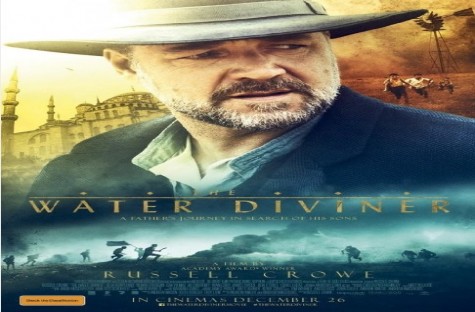
Hande Apakan
Specialist, AVIM
The Water Diviner, which is directed by famous actor Russell Crowe who also took the leading role, was released in December 2014 in Turkey. The movie is about an Australian father of three Anzac soldiers who arrives in Turkey after the war seeking his sons’ fate. Grandson of an Anzac, Russell Crowe has stated that they took inspiration from a letter of the period. The Water Diviner is significant in the sense that the Battle of Çanakkale was a turning point in our history. Moreover, the movie is noteworthy in the sense that it is a Western made movie (co-production in USA, Australia and Turkey) that reflects on the history of the Turkish nation that was in a life and death struggle.
Water Diviner stands out with its approach of reflecting what happened in Çanakkale in an unbiased manner. It seems that the scenarists wrote the movie with a good knowledge of Turkey, the Turkish people and the history of the nation. It stands out as a western made movie that reflected the period on the screen from the historical viewpoint of the Turkish nation who was under invasion and experienced a horrible atrocity. The period in which Istanbul and Western Anatolia were under invasion was successfully reflected on the screen. Thus, it stands out in one of the most impressive scenes, when the Turkish commander’s responds to the father, who blamed him for the deaths of his sons, along the lines of “You invaded our land. You were the one who sent your sons to our land.” As Crowe pointed out in an interview as well, the movie underlines the fact that the Anzac corps unrightfully invaded a sovereign state.
In other respects, the Water Diviner draws attention by its humanistic and peaceful approach. The movie exposes the tragedy in the Battle of Çanakkale and the trauma it brought on the Turkish nation and the peoples of the Anzacs. In doing this, it reminds the audience that wars do not just spoil down to political calculations but those are humanbeings who fought in battlefronts. In fact, one of the most striking scenes of the movie is the one where the three brothers lie wounded on the battleground. In this scene, the director shows the battleground from a wide angle and simply reminds us that those who died there, regardless of their nationality, were firstly human. In addition, the movie, on the one hand, contributes to narrating what the Turkish nation had gone through, and, on the other hand, allows for the Turkish nation to understand those who fought on the other side. A movie that may be considered to have an anti-war tendency, the Water Diviner succeeded in reflecting the shared pain of the period in a humanistic manner.
Lastly, considering Armenian allegations regarding the events of 1915, the Water Diviner, indirectly gives a message that misery and tragedy the Armenians have claimed against the Turks is a part of a shared history. Moreover, it gives the message that Turkish nation, who was fighting on five fronts at the time and, thus, was in a life and death struggle, was not in a position to execute a policy of genocide against Armenians.
© 2009-2025 Center for Eurasian Studies (AVİM) All Rights Reserved
No comments yet.
-
CENTER FOR EURASIAN STUDIES (AVİM) HELD A BRAIN-STORMING MEETING ON THE TOPIC “ EURASIAN PERSPECTIVES- THE VIEWS FROM KAZAKHSTAN AND TURKEY”.
Hande Apakan 25.02.2014 -
 “MONTENEGRO AND THE BALKANS” MEETING ORGANIZED BY AVIM AND ANKARA UNI. CENTER OF INTERNATIONAL ECONOMIC AND POLITICAL RESEARCH
“MONTENEGRO AND THE BALKANS” MEETING ORGANIZED BY AVIM AND ANKARA UNI. CENTER OF INTERNATIONAL ECONOMIC AND POLITICAL RESEARCH
Hande Apakan 17.03.2015 -
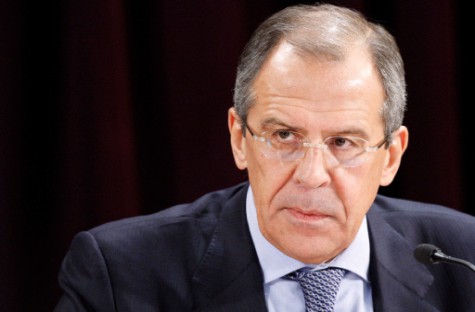 RUSSIA FM TELLS US SANCTIONS 'UNACCEPTABLE'
RUSSIA FM TELLS US SANCTIONS 'UNACCEPTABLE'
Hande Apakan 18.03.2014 -
 RUSSIA QUESTIONS 'UNUSUAL' UKRAINE ELECTION
RUSSIA QUESTIONS 'UNUSUAL' UKRAINE ELECTION
Hande Apakan 06.05.2014 -
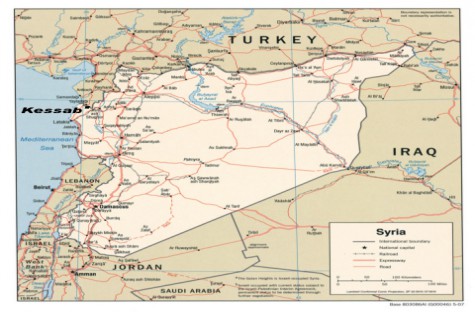 ARMENIAN CLAIMS WITH REGARD TO THE EVENTS IN KESSAB
ARMENIAN CLAIMS WITH REGARD TO THE EVENTS IN KESSAB
Hande Apakan 16.04.2014
-
 BOOK REVIEW-SASUN: THE HISTORY OF AN 1890S ARMENIAN REVOLT
BOOK REVIEW-SASUN: THE HISTORY OF AN 1890S ARMENIAN REVOLT
Ali Murat TAŞKENT 12.04.2015 -
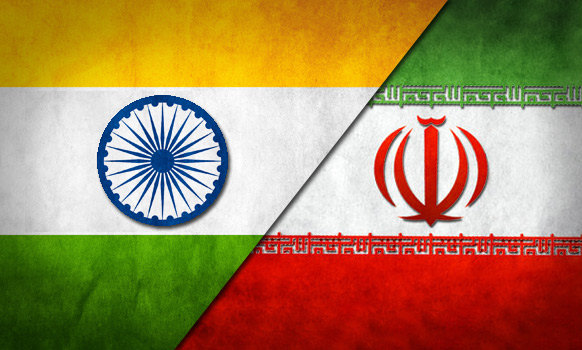 FROM SOUTH TO NORTH, MARITIME CORRIDOR: CHABAHAR PORT
FROM SOUTH TO NORTH, MARITIME CORRIDOR: CHABAHAR PORT
Özge Nur ÖĞÜTCÜ 25.05.2016 -
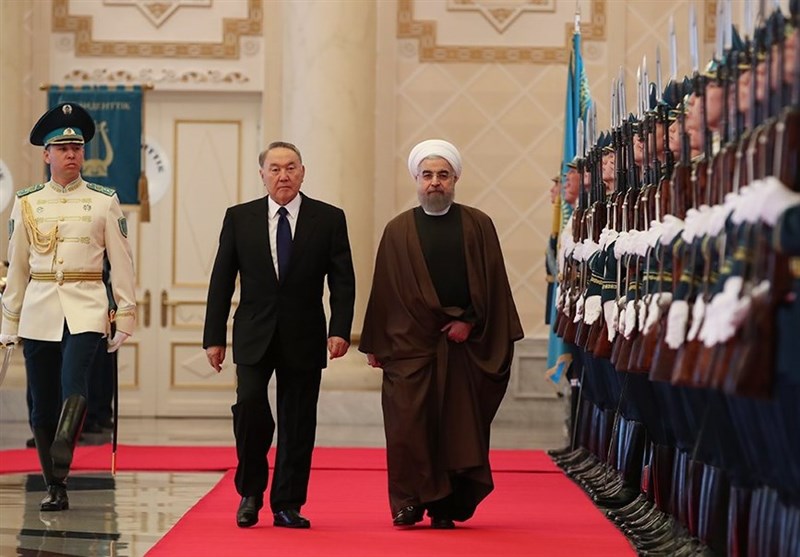 IRANIAN PRESIDENT HASSAN ROUHANI’S VISIT TO ARMENIA, KAZAKHSTAN AND KYRGYZSTAN
IRANIAN PRESIDENT HASSAN ROUHANI’S VISIT TO ARMENIA, KAZAKHSTAN AND KYRGYZSTAN
Özge Nur ÖĞÜTCÜ 26.12.2016 -
 THE NATURE OF THE PARLIAMENTARY RESOLUTIONS ON THE ‘ARMENIAN GENOCIDE’: LESSONS FROM SPAIN
THE NATURE OF THE PARLIAMENTARY RESOLUTIONS ON THE ‘ARMENIAN GENOCIDE’: LESSONS FROM SPAIN
Miguel MORENO - Turgut Kerem TUNCEL 03.06.2015 -
 GENOCIDE ACCUSATION AS A FORM OF PUNISHMENT
GENOCIDE ACCUSATION AS A FORM OF PUNISHMENT
Mehmet Oğuzhan TULUN 31.05.2016
-
25.01.2016
THE ARMENIAN QUESTION - BASIC KNOWLEDGE AND DOCUMENTATION -
12.06.2024
THE TRUTH WILL OUT -
27.03.2023
RADİKAL ERMENİ UNSURLARCA GERÇEKLEŞTİRİLEN MEZALİMLER VE VANDALİZM -
17.03.2023
PATRIOTISM PERVERTED -
23.02.2023
MEN ARE LIKE THAT -
03.02.2023
BAKÜ-TİFLİS-CEYHAN BORU HATTININ YAŞANAN TARİHİ -
16.12.2022
INTERNATIONAL SCHOLARS ON THE EVENTS OF 1915 -
07.12.2022
FAKE PHOTOS AND THE ARMENIAN PROPAGANDA -
07.12.2022
ERMENİ PROPAGANDASI VE SAHTE RESİMLER -
01.01.2022
A Letter From Japan - Strategically Mum: The Silence of the Armenians -
01.01.2022
Japonya'dan Bir Mektup - Stratejik Suskunluk: Ermenilerin Sessizliği -
03.06.2020
Anastas Mikoyan: Confessions of an Armenian Bolshevik -
08.04.2020
Sovyet Sonrası Ukrayna’da Devlet, Toplum ve Siyaset - Değişen Dinamikler, Dönüşen Kimlikler -
12.06.2018
Ermeni Sorunuyla İlgili İngiliz Belgeleri (1912-1923) - British Documents on Armenian Question (1912-1923) -
02.12.2016
Turkish-Russian Academics: A Historical Study on the Caucasus -
01.07.2016
Gürcistan'daki Müslüman Topluluklar: Azınlık Hakları, Kimlik, Siyaset -
10.03.2016
Armenian Diaspora: Diaspora, State and the Imagination of the Republic of Armenia -
24.01.2016
ERMENİ SORUNU - TEMEL BİLGİ VE BELGELER (2. BASKI)
-
AVİM Conference Hall 24.01.2023
CONFERENCE TITLED “HUNGARY’S PERSPECTIVES ON THE TURKIC WORLD"









